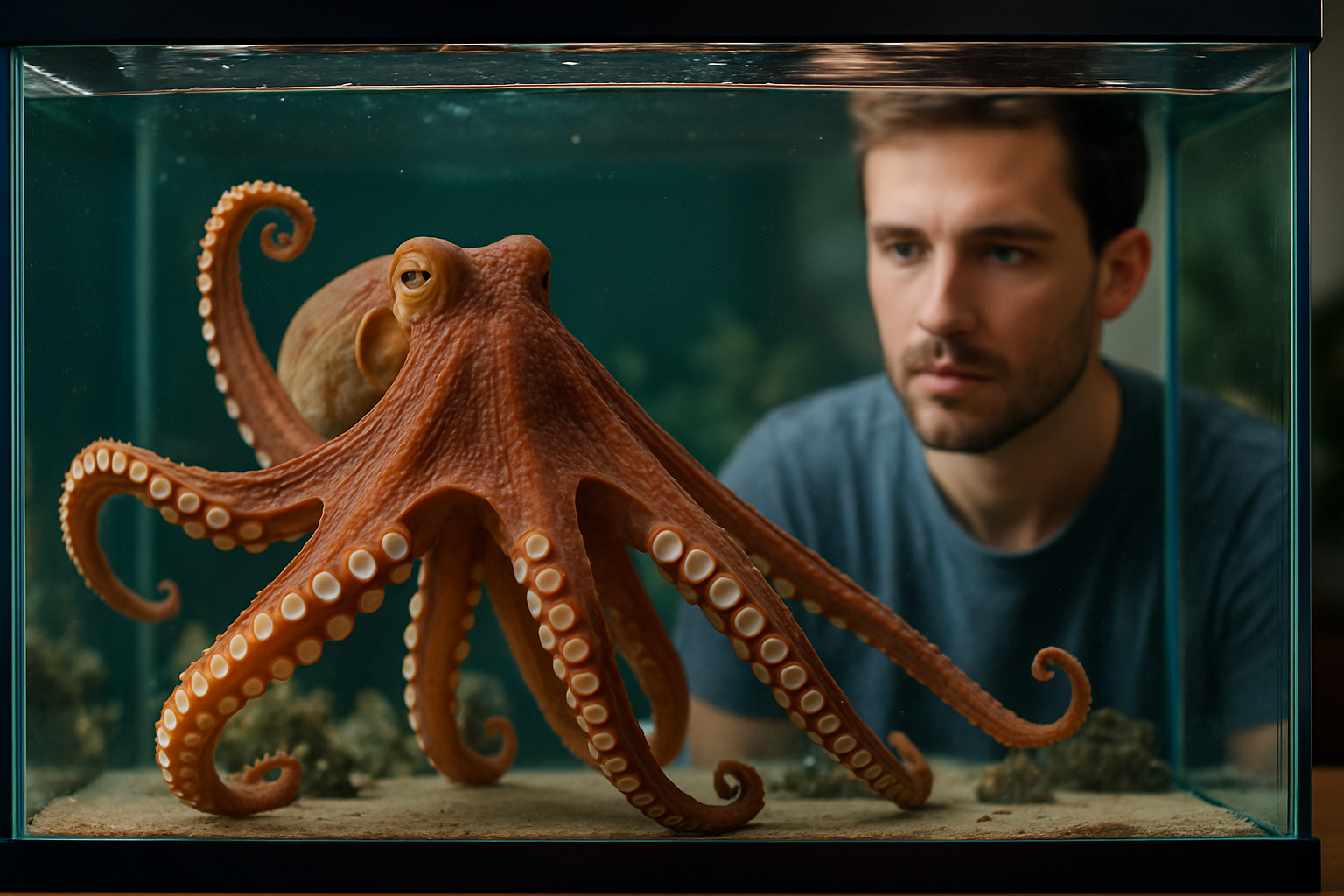Aquatic Acrobats: The Surprising Intelligence of Octopuses
Dive into the fascinating world of one of the ocean's most enigmatic creatures. Octopuses, known for their eight arms and ink-squirting abilities, are far more than meets the eye. These cephalopods possess a level of intelligence that rivals some mammals, showcasing problem-solving skills, adaptive behaviors, and even the capacity for play. Join us as we explore the captivating realm of octopus cognition and uncover the secrets behind their remarkable abilities.

The octopus’s ability to learn and adapt is astonishing. Studies have shown that they can navigate mazes, use tools, and even recognize individual human faces. Their capacity for spatial memory and object manipulation rivals that of many vertebrates, despite having evolved along a completely different evolutionary line.
Masters of Disguise and Escape
One of the most impressive demonstrations of octopus intelligence is their unparalleled mastery of camouflage and escape artistry. These cephalopods can change their skin color and texture in milliseconds, blending seamlessly with their surroundings. This ability isn’t just a reflexive action; it involves complex decision-making processes that take into account their environment and potential threats.
Octopuses have been observed using coconut shells as portable shelters, demonstrating tool use – a behavior once thought to be exclusive to higher vertebrates. They’ve also been known to squeeze through incredibly small spaces, thanks to their boneless bodies, showcasing problem-solving skills when faced with seemingly impossible obstacles.
The Octopus Brain: A Unique Neural Network
The octopus brain is a marvel of biological engineering. Unlike vertebrate brains, which are centralized, the octopus brain is largely decentralized. Each arm has a significant degree of autonomy, capable of making decisions independently of the central brain. This distributed intelligence allows octopuses to multitask in ways that are impossible for most other animals.
Research has shown that octopuses possess both short-term and long-term memory capabilities. They can remember solutions to problems and apply them to new situations, showcasing a level of cognitive flexibility that is rare in the animal kingdom. This ability to learn and adapt quickly is crucial for their survival in the ever-changing marine environment.
Social Behaviors and Emotional Intelligence
Contrary to popular belief, octopuses are not always solitary creatures. Recent studies have revealed complex social behaviors in some species, challenging our understanding of cephalopod intelligence. Observations of octopuses in the wild have shown instances of cooperative hunting and even what appears to be play behavior.
Perhaps most intriguingly, octopuses have demonstrated signs of what could be interpreted as emotional intelligence. They’ve been observed expressing what appears to be curiosity, frustration, and even joy. While it’s important not to anthropomorphize these behaviors, they do suggest a level of cognitive and emotional complexity that is rarely seen outside of mammals and birds.
Conservation and Ethical Considerations
As our understanding of octopus intelligence grows, so too does the ethical debate surrounding their treatment. The octopus’s remarkable cognitive abilities raise important questions about their welfare in captivity and the ethics of using them in scientific research. Some countries have begun to include cephalopods in animal welfare legislation, recognizing their capacity for suffering and the need for humane treatment.
Conservation efforts are also gaining momentum as we learn more about these fascinating creatures. Many octopus species face threats from overfishing, habitat destruction, and climate change. Protecting these intelligent beings is not just about preserving biodiversity; it’s about safeguarding a unique form of intelligence that has evolved independently from our own.
The Future of Octopus Research
The field of octopus intelligence research is still in its infancy, with new discoveries being made regularly. Advances in technology are allowing scientists to study octopuses in their natural habitats more effectively, providing insights into their behavior and cognition that were previously impossible to obtain.
One of the most exciting areas of research is the potential application of octopus-inspired technologies. Their distributed intelligence and flexible bodies have inspired innovations in robotics and artificial intelligence. Understanding how octopuses process information and adapt to their environment could lead to breakthroughs in fields ranging from medicine to space exploration.
As we continue to unravel the mysteries of octopus intelligence, we’re not just learning about these incredible creatures – we’re expanding our understanding of what intelligence itself means. The octopus serves as a reminder that brilliance in the animal kingdom comes in many forms, and that there is still so much to discover beneath the waves.





